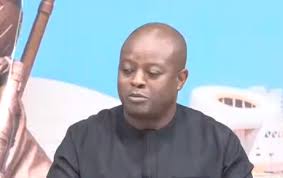
Benin’s political landscape is abuzz following the designation of Romuald Wadagni as the presidential candidate for the 2026 election, a decision that has drawn comparisons to Lionel Zinsou’s 2016 nomination.
Speaking on the Canal 3 Benin program En Route pour 2026 on September 25, MP Malick Gomina of the Republican Bloc (BR) highlighted the key differences between the two appointments.
“As soon as Lionel Zinsou was appointed, you saw the noise of boots that were around him, you saw disapproval. Zinsou was an imported element. Romuald Wadagni was there, from the beginning, he made the crossing with President Patrice Talon. Everyone saw him at work,” Gomina said, stressing Wadagni’s long-standing presence in national politics.
The MP emphasized that the current Minister of Economy and Finance has actively collaborated with the National Assembly across several committees, earning recognition for his “technical expertise” and capacity for reform.
“It was not his head that was imposed on us, but what he represents, and what he can contribute, that prevailed,” Gomina added, asserting that this time, the choice emerged from within the political system rather than being perceived as an external imposition.
Addressing concerns over Wadagni not formally belonging to the Republican Bloc or the Progressive Union for Renewal, Gomina framed the decision as a reinforcement of the party system.
“It does not contradict the party system at all, quite the contrary, it reinforces the reform.
Here, Romuald Wadagni was able to convince the parties that have the sponsorship and we decided that he should be our candidate,” he explained, describing the appointment as a collective effort aimed at advancing the “higher interest of the nation.”
Gomina also noted that the nomination had an impact on the opposition.
“Following the appointment of our candidate, they realized the quality of the candidate and… in their various certainties, were shaken,” he said, suggesting that Wadagni’s selection has altered the political dynamics ahead of the 2026 election.
The discussion highlights a deliberate strategy by the Republican Bloc to present a candidate viewed as competent, experienced, and broadly acceptable, reflecting a shift toward prioritizing national interest over strict partisan considerations.



